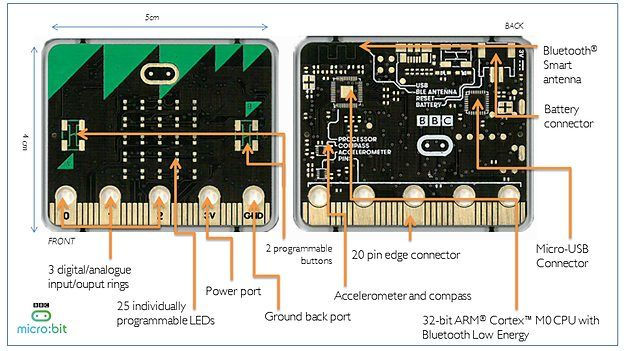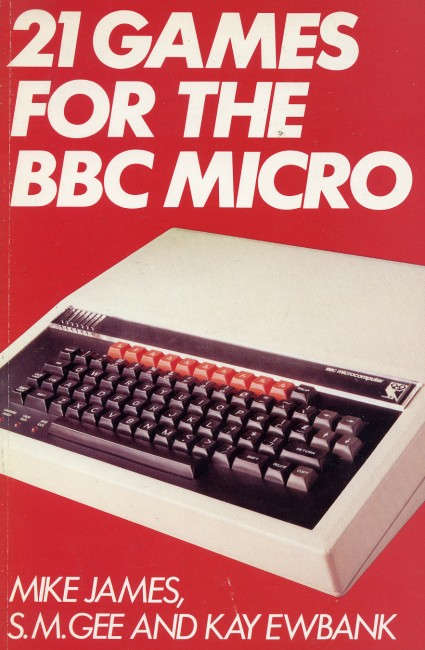| BBC Micro To micro:bit |
| Written by Sue Gee | |||
| Saturday, 16 April 2016 | |||
|
Last month saw the arrival of the BBC micro:bit into schools across the UK. These tiny devices are intended to inspire a new generation of youngster to get into digital technology - wearables, the IoT and of course coding. The initiative announced last year was for up to 1 million of these small devices - half the size of a credit-card - to be given away to Year 7 pupils (11- and 12-year olds). Beyond this initial distribution the plan is to set up a not-for-profit to sell the devices. The Micro:bit is an interesting piece of hardware. Measuring 4 cm by 5 cm, it doesn't have a case, keyboard, mouse or display. However it does have an on-board accelerometer, a built-in magnetometer, bluetooth LE and three AtoD convertors. It has 16MB memory expandable with Flash storage and the processor is an ARM Cortex M0, and the system software makes it an mbed device.
You might be wondering why this device sports the BBC logo. This question was addressed at last year's launch by the BBC's Director-General, Tony Hall, who said: “This is exactly what the BBC is all about - bringing the industry together on an unprecedented scale and making a difference to millions. Just as we did with the BBC Micro in the 1980s, we want to inspire the digital visionaries of the future. Only the BBC can bring partners together to attempt something this ambitious, this important to Britain’s future on the world stage." So the precedent for a public service broadcaster backing the micro:bit project is clearly the BBC Micro and once one of the devices was received by the I Programmer team the temptation to resurrect some of the programs from BBC Micro proved a temptation we couldn't resist. What better than select something simple from 21 Games for the BBC Micro, published in the era when the home computer introduced computer programming as a hobby to the generation who went on to become the programmers of the 21st century. Games have always been a great way to get into programming so why should the micro:bit be any different.
The Micro:bit is quite a capable computer but it does have one limitation - it only has a 5x5 LED matrix display. What sort of game could you possibly program on that! Our initial choice - we may do more subject to popular demand or sheer nostalgia, is called Commando Jump, which was, by design, a very simple game intended to teach BBC Basic programming. It presented the player with a wall that the commando had to climb. The initial jump height was determined by the player's reaction time. After that they could make the commando scramble up the wall by pressing a key as fast as they could. The faster, the higher the commando climbed. If you reached the top of the wall before that time out then at the next level there was a higher wall. If you didn't make it the commando would slide down with a deflated noise.
The micro:bit website offers four choices for coding your programs and we are taking the opportunity to implement the game in all of them to see what each of the options has to offer and what the limitations are. This is proving very interesting. MicroPython, the one Mike James adopted as his starting point since it is the most familiar to those who already program, seems to produce the richest result. The reimplementation using the Microsoft Blocks editor is necessarily simpler. Stay tuned for the JavaScript and Touch Develop versions and our comparative review of all four development environments.
More InformationRelated ArticlesThe BBC Micro:bit Is An Mbed Device In C/C++ Micro:bit Commando Jump In The Microsoft Block Editor Commando Jump Game For The Micro:bit In Python BBC Micro:Bit Finally Ships to 1 Million For Free BBC micro:bit Your Next Computer? BBC Giving Away 1 Million Microcomputers Teach Code In School - Before It's Too Late! Four Generations - Video of BBC Micro
Comments
or email your comment to: comments@i-programmer.info |
|||
| Last Updated ( Sunday, 09 October 2022 ) |





